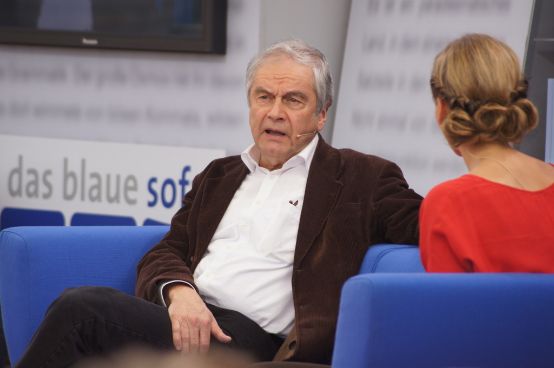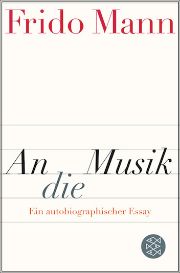Personal music history
In his autobiographical essay, Frido Mann focuses on music.

If this book had made you aware of the slow movement of Schubert's second-last piano sonata (page 121) - that alone would have made it worth your while to read it! You can be 75 years old and encounter this movement for the first time as a non-piano-playing music lover: a stunning experience!
But this little book offers even more surprising insights, references to lesser-known events in the history of music or to works which, in turn, have been recorded as remarkable from the author's sometimes chance encounters. For example, the very personal comments on music as a shared experience with the little opera Brundibar by Hans Krása - performed dozens of times in the transit camp Theresienstadt (now Terezín), always with a changing cast, when "many of the young performers were deported to the extermination camps". The extremely brief characterization distinguishing Debussy from Ravel is also astonishing.
However, the book can also be read as an overview of music history from Gesualdo to Ligeti and Henze, which was not written for a specialist audience, but for a group of readers interested in music who are happy to accept subjective judgments. Technical terms of New Music, such as "aleatoric" or "serial music", are explained in a professional yet comprehensible manner.
The fact that, as the grandson of Thomas Mann, he is based on his great musical novel Doctor Faustus and dedicates an entire chapter to him for several reasons: His father Michael, the youngest child of the Mann family, had also contributed to the preparatory work (page 36); furthermore, the grandfather thematizes in his novel an existential idea for the grandson, namely that the reduction of the religious in music has encouraged modern hopelessness: "The harmonious cosmic reference to God in the Baroque period has been replaced by a focus on the world of individual human feeling" (page 249). In the few references to his father, a more concise but fairer picture of Michael's musical career emerges than in the latest publication on the Mann family by Thilmann Lahme.
Frido Mann's advice in the last part of the book on how contemporary music could be brought closer to the interested public again can be met with a certain skepticism, but such considerations are certainly not unnecessary.
Frido Mann, To the music. An autobiographical essay. Fischer TB 03376, 332 pages, € 10.99, Fischer, Munich 2015, ISBN 978-3-596-03376-8








